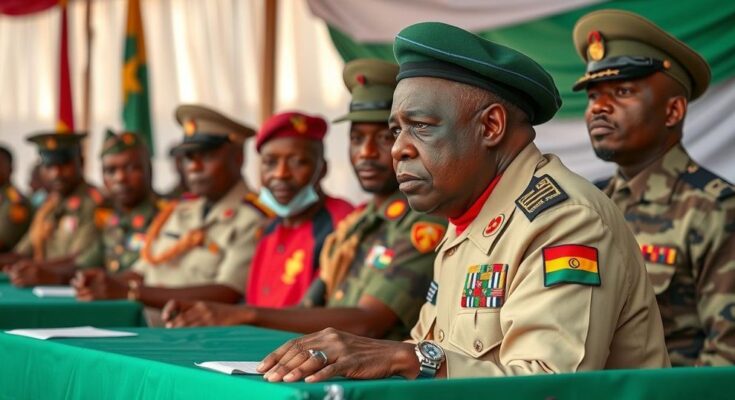Chadians are voting in parliamentary elections marking an end to three years of military rule, following a controversial presidential vote. Despite these elections being the first in over a decade, the main opposition is boycotting the process, raising concerns about its legitimacy. Mahamat Idriss Deby, the ruling junta leader, came to power after his father’s death in 2021, making the elections a critical step in restoring democracy.
Chadians are participating in parliamentary and regional elections, marking a significant transition as the country moves away from three years of military governance. This election is particularly noteworthy as it is the first of its kind in over a decade. However, the main opposition parties have opted to boycott the elections, questioning the legitimacy of the process. The elections follow a contested presidential vote that saw Mahamat Idriss Deby, leader of the ruling junta, secure power after the demise of his father, former president Idriss Deby Itno, in 2021. This shift towards parliamentary elections raises questions about the country’s future political landscape and the prospects for reinstating democratic governance.
Chad has faced a tumultuous political history, characterized by decades of autocratic rule. After the death of longtime president Idriss Deby Itno, his son Mahamat Idriss Deby took control of the country through a military junta, promising a transitional period leading back to civilian rule. The current parliamentary elections are intended to conclude this transitional phase and restore a semblance of democratic governance, following years of military control, and are viewed as a crucial step for Chad moving forward.
In summary, the parliamentary elections in Chad represent a pivotal moment as the nation seeks to transition from military rule to a more democratic governance structure. Despite the protests and boycotts from opposition parties that question the electoral process, the importance of these elections cannot be understated. The outcomes will significantly influence Chad’s governance and political stability in the years to come.
Original Source: www.wdrb.com




